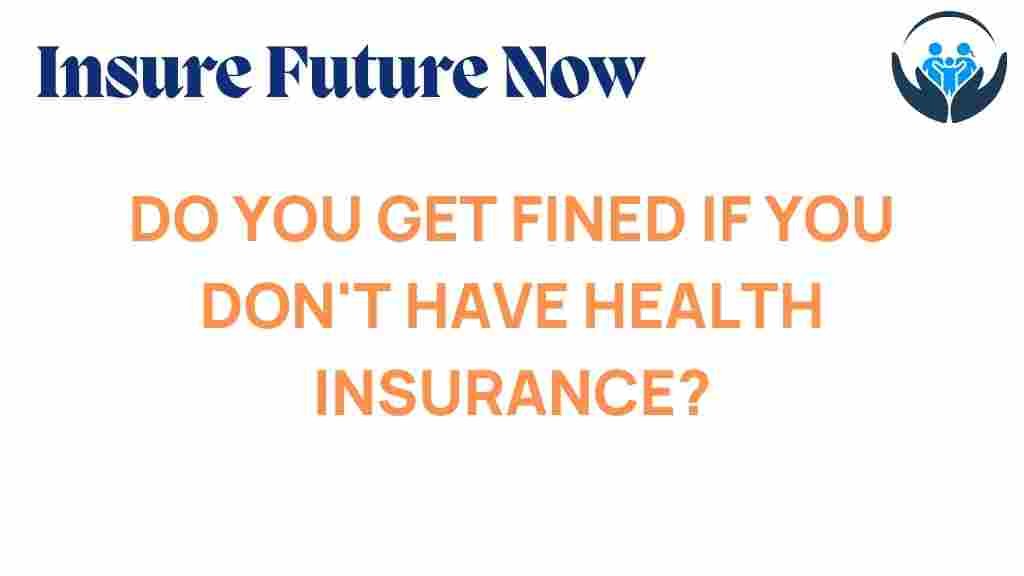The Hidden Costs of Skipping Health Insurance: Are You at Risk?
In today’s world, the importance of health insurance cannot be overstated. Many individuals opt to forgo healthcare coverage, believing they can save money or that they won’t need medical services. However, this decision can lead to severe financial consequences. In this article, we explore the hidden costs associated with skipping health insurance, including potential fines, penalties, and the overwhelming burden of medical bills that can arise from being uninsured.
Understanding Health Insurance and Its Importance
Health insurance serves as a safety net, protecting you from high medical costs and ensuring access to necessary healthcare services. It covers a range of services, including:
- Routine check-ups
- Emergency services
- Prescription medications
- Preventive care
Without adequate healthcare coverage, individuals can face significant financial risk when unexpected health issues arise. The costs associated with medical treatment can quickly escalate, leading to crippling debt.
The Regulatory Landscape: Fines and Penalties
In some regions, there are regulations in place that enforce health insurance coverage. For instance, the Affordable Care Act (ACA) previously mandated that individuals must have health insurance or face fines and penalties. Although the individual mandate penalty was reduced to $0 at the federal level in 2019, some states have implemented their own penalties for being uninsured.
Here’s a breakdown of potential penalties for not having health insurance:
- State Penalties: States like California, Massachusetts, and New Jersey impose their own fines for lacking coverage.
- Increased Tax Burden: Uninsured individuals may face higher taxes due to the lack of insurance subsidies.
- Healthcare Costs: Paying out-of-pocket for medical services without insurance can lead to exorbitant expenses.
The Financial Risks of Being Uninsured
Skipping health insurance places you at significant financial risk. Here are some potential costs that can arise:
- Emergency Care: An unexpected trip to the emergency room can result in bills exceeding thousands of dollars.
- Chronic Condition Management: Individuals with chronic conditions may face regular medical expenses without insurance to help offset costs.
- Preventive Care: Missing out on preventive services can lead to more severe health issues and increased medical bills in the long run.
For example, an average emergency room visit can cost anywhere from $150 to $3,000, depending on the severity of the issue. Without health insurance, you are responsible for the entire amount.
How to Evaluate Your Need for Health Insurance
Before deciding to skip health insurance, consider the following steps:
1. Assess Your Health Needs
Evaluate your current health and any pre-existing conditions you may have. If you have ongoing health issues, insurance can save you from high costs.
2. Understand the Costs
Research the costs of health insurance plans available to you. Compare premiums, deductibles, and out-of-pocket maximums to find a plan that fits your budget.
3. Consider the Risks
Think about the potential financial risks of being uninsured. Medical emergencies can happen at any time, and the lack of coverage can lead to significant debt.
4. Explore Alternatives
If traditional health insurance is too costly, consider alternatives such as:
- Health Savings Accounts (HSAs)
- Short-term health insurance plans
- Medicaid or state programs for low-income individuals
Troubleshooting Common Concerns About Health Insurance
Many people have concerns that prevent them from obtaining health insurance. Here are some common issues and how to address them:
Concern 1: “Health Insurance is Too Expensive”
While premiums can be high, many plans offer subsidies based on income. Additionally, consider higher deductibles for lower monthly premiums to make coverage more affordable.
Concern 2: “I’m Young and Healthy, So I Don’t Need It”
Even young and healthy individuals can face unexpected medical emergencies. Insurance is a safeguard against unforeseen circumstances that can lead to financial hardship.
Concern 3: “I Don’t Understand How Health Insurance Works”
Educate yourself about how healthcare coverage works. Many resources, including online platforms and community health centers, provide information to help you navigate your options.
Conclusion: The Importance of Health Insurance
Skipping health insurance might seem like a quick way to save money, but the hidden costs can far outweigh any initial savings. From potential fines and penalties to the overwhelming burden of medical bills, being uninsured poses a significant financial risk.
Make an informed decision about your health coverage. Weigh the costs, understand the risks, and explore your options to ensure you are protected. Remember, investing in health insurance is an investment in your financial future.
For more information on finding the right health insurance plan for you, visit Healthcare.gov. If you need assistance navigating your health insurance options, consider reaching out to a local health insurance agent or counselor.
This article is in the category Policies and created by InsureFutureNow Team
